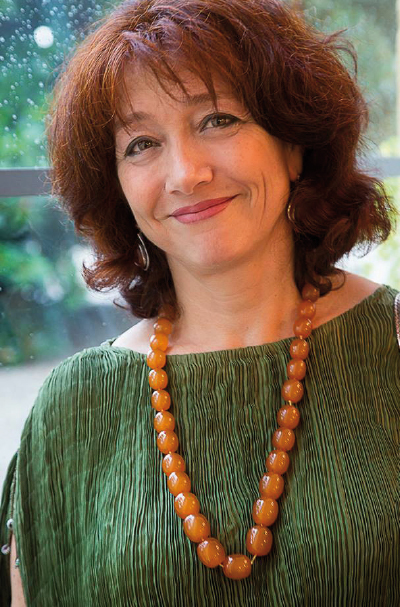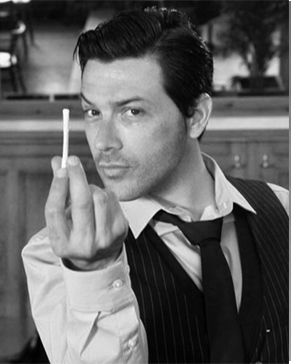Dialog with Alessandra Vinciguerra.
Giardino La mortella - Isola d'Ischia
 Entering La Mortella is an experience renewing the mind sensitivity. In March, the transformation of the colours on a scale, between an autumn and a winter of decline, show the recovered vigour, which integrates elements such as earth and water in the most varied forms the nature has. The tree trunks, the leaves and the fruits represent channels of life extended to the sky and the hidden roots of the certainties supporting the gravity of a harmonious victory. The encounter between visible and invisible, between sky and earth, is celebrated here for our senses.
Entering La Mortella is an experience renewing the mind sensitivity. In March, the transformation of the colours on a scale, between an autumn and a winter of decline, show the recovered vigour, which integrates elements such as earth and water in the most varied forms the nature has. The tree trunks, the leaves and the fruits represent channels of life extended to the sky and the hidden roots of the certainties supporting the gravity of a harmonious victory. The encounter between visible and invisible, between sky and earth, is celebrated here for our senses.
Today we are meeting Alessandra Vinciguerra, director of the garden, not in an interview, but in a dialogue highlighting the Philosophy, the “humanistic” side supporting and keeping the island surrounded by another island, the human one.
The word “garden”, in fact, means a surrounded, protected and ended place. A different habitat, where the accurate vegetal geometries are organised in a peaceful existence.
Raffaele Mirelli: What does the word “work” mean for you, considering that for some philosophers, such as Aristotle, working represents the effort that the human being produces in order to enjoy the leisure time.
Alessandra Vinciguerra: It’s a vocation and this is why I do consider myself lucky. For me working is something inherent to my existence. I don’t live it as an obligation, but as an essential part, fundamental of my being. Working means “providing care”.
Paraphrasing a philosopher, I would say “I work, therefore I am!”
R.M.: What does the garden represent as a concept in general and which are the motivations, which pushed you to take on this heritage?
A.V.: There are many responsibilities in the heritage I have been entrusted of, first towards my predecessor, Lady Walton. Having met her personally and having shared directly with her the finalities linked to this major project has been a privilege, which has changed myself and the convictions linked to this job. For me, the garden has become a place of sharing, as it was for her. This reaches its maximum splendour when visitors are here; it represents a place of thought, where balances are in perfect harmony, in which material and spiritual meet.
R. M.: Therefore, is there a connection between Philosophy and what you do in this garden with your collaborators?
A.V.: I studied Literature! Therefore, you can imagine that both Philosophy and Literature are closely linked to my work, actually, how these are part of it. Moreover, for me the garden is a place for reading, of tranquillity, where the forma mentis dictated by my studies is inevitably reflecting.
R. M. Therefore, what beauty represents for you in this entirety of visions, of which you are the ambassador? Are we talking about a mere aesthetic beauty, in the classic sense?
A. V.: Beauty is here intended as an inner and outer harmony. This represents a time between what is visible and what is invisible.
R. M. So, the time, the seasons. How time is showed – in its flow- in this space?
A. V.: he fourth dimension of time is the inner passage one. Here, for me, time assumes the connotation of serenity. All gardeners are serene! I am too, as well as my collaborators. If we then look at time as a past and future projection, I am going to tell you an anecdote as an exemple: when I was working in London, a woman who had a garden wanted to hide a sort of construction placed in the middle of it, compromising the harmony. She showed me the oaks around that construction and even if the oaks were still young and not big enough to cover that imperfection, one day, in a very long time, they would have done so. What does this mean? Who plants a tree will not often see the fruits, they will not see its development, its growth. Therefore, I have learned this dimension of time through work.
R. M.: A bit like the relationship between parents and children? You don’t fully see their evolution, when they grow up…
A. V.: Yes, exactly! It is like an investment of trust in the future. Behind each plant, there is a human story, an event linking the past, the present and the future. Even at La Mortella, I have planted some oaks and I know that I will never see their maximum splendour.
R. M.: Are they conflicts between plants?
A. V.: Not at all. There are uncontrollable variables instead. For example, we often plant seeds being convinced that in that specific point they will grow better, trusting of course our experience and our knowledge in the field. However, nature puts us in front of unexpected situations: in that point, in fact, the plant is no longer able to grow. Then, what happens is that after a while, the same plant has grown spontaneously in a corner of the garden different from the one we identified, maybe because the wind carried the seed there. This puts us in front of new situations and ways of knowledge not considered.
Plants are living in peaceful harmony, they help each other, one associates with another, creating real societies sharing a goal.
R. M.: What are the questions you are never asked in connection with your task, your vocation? What are your prospects and wishes for this island?
A. V.: I am often redesigning the garden outside of this garden. I redesign the island according to the precepts of harmony and sharing I learnt from others, from Lady Walton and from the plants.
They never ask me if I am happy about what I am doing. I would like to take the opportunity to say that I am so!
R. M.: Galileo Galilei said “Things are connected by invisible bonds. You can't pick a flower without troubling a star.” Do you believe in this?
A. V.: Of course! I don’t know how this happens, but I believe it is like this!
Therefore, if the garden is a protected place, it is our job to defend and protect it and learn what links us to it. People who make these places are as important as the places, because thanks to their visions, their work, they persist over time. Each person leading these creative heritages keeps a vision of a coherent, philosophic, clear and illuminated reality.
These are the real places of culture, or of the present, made of thoughts, works and days, of time, of perseverance and willingness to know each other. Through them, even our economy benefits from it.



Comments powered by CComment